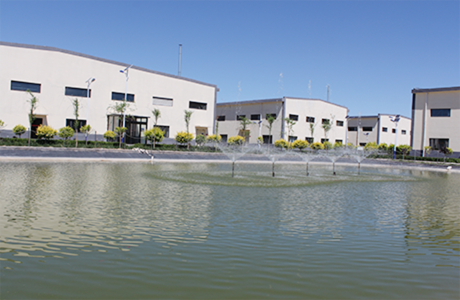- Afrikaans
- Albanian
- Amharic
- Arabic
- Armenian
- Azerbaijani
- Basque
- Belarusian
- Bengali
- Bosnian
- Bulgarian
- Catalan
- Cebuano
- Corsican
- Croatian
- Czech
- Danish
- Dutch
- English
- Esperanto
- Estonian
- Finnish
- French
- Frisian
- Galician
- Georgian
- German
- Greek
- Gujarati
- Haitian Creole
- hausa
- hawaiian
- Hebrew
- Hindi
- Miao
- Hungarian
- Icelandic
- igbo
- Indonesian
- irish
- Italian
- Japanese
- Javanese
- Kannada
- kazakh
- Khmer
- Rwandese
- Korean
- Kurdish
- Kyrgyz
- Lao
- Latin
- Latvian
- Lithuanian
- Luxembourgish
- Macedonian
- Malgashi
- Malay
- Malayalam
- Maltese
- Maori
- Marathi
- Mongolian
- Myanmar
- Nepali
- Norwegian
- Norwegian
- Occitan
- Pashto
- Persian
- Polish
- Portuguese
- Punjabi
- Romanian
- Russian
- Samoan
- Scottish Gaelic
- Serbian
- Sesotho
- Shona
- Sindhi
- Sinhala
- Slovak
- Slovenian
- Somali
- Spanish
- Sundanese
- Swahili
- Swedish
- Tagalog
- Tajik
- Tamil
- Tatar
- Telugu
- Thai
- Turkish
- Turkmen
- Ukrainian
- Urdu
- Uighur
- Uzbek
- Vietnamese
- Welsh
- Bantu
- Yiddish
- Yoruba
- Zulu
11 月 . 01, 2024 02:06 Back to list
Optimizing Phosphate Injection Techniques for Enhanced Agricultural Productivity and Environmental Sustainability
Exploring Phosphate Injection Importance and Applications
Phosphate injection is an increasingly important technique used across various fields, including agriculture, aquaculture, and industrial applications. Phosphorus is an essential nutrient that plays a critical role in the growth and development of plants, aquatic life, and even in certain industrial processes. This article delves into the significance of phosphate injection and its diverse applications.
In agriculture, phosphate injection is primarily utilized to enhance soil fertility. Phosphorus is a key component of fertilizers, which are crucial for crops’ growth. By injecting phosphates directly into the soil, farmers can ensure that plants receive the necessary nutrients for optimal growth and productivity. This method not only improves crop yield but also promotes healthier plants that are more resistant to diseases and pests. Moreover, phosphate injection can minimize nutrient runoff into water bodies, thereby reducing environmental pollution and promoting sustainable agricultural practices.
In aquaculture, phosphate injection plays a vital role in maintaining water quality and promoting fish health. Phosphates are essential for algal growth, which serves as a food source for many aquatic organisms. By carefully managing phosphate levels in aquaculture systems, fish farmers can create a balanced ecosystem that supports the growth of beneficial algae, while simultaneously preventing the proliferation of harmful algal blooms. This balance is crucial for ensuring the well-being of fish stocks and the overall health of aquatic environments.
phosphate injection

Furthermore, phosphate injection is utilized in various industrial processes, particularly in wastewater treatment. In this context, phosphates are injected into wastewater systems to facilitate the removal of contaminants and improve overall water quality. This method helps in the effective management of phosphorus levels, which is vital for preventing eutrophication in freshwater bodies. By controlling phosphate levels in wastewater, industries can mitigate their environmental impact and contribute to sustainable water management practices.
Despite its numerous benefits, phosphate injection must be managed carefully to avoid potential drawbacks. Overuse or mismanagement of phosphates can lead to environmental issues such as nutrient overload in water bodies, causing algal blooms and detrimental effects on aquatic life. Therefore, it is essential to adopt best practices in phosphate application to ensure that its benefits are maximized while minimizing any adverse effects.
In summary, phosphate injection is a vital technique with significant implications for agriculture, aquaculture, and industrial practices. By ensuring that phosphorus is available where and when it is needed, we can enhance food production, maintain healthy aquatic ecosystems, and support sustainable industrial processes. As we continue to face global challenges related to food security and environmental sustainability, the responsible use of phosphate injection will play a crucial role in addressing these issues.
-
The Power of Radix Isatidis Extract for Your Health and Wellness
NewsOct.29,2024
-
Neomycin Sulfate Soluble Powder: A Versatile Solution for Pet Health
NewsOct.29,2024
-
Lincomycin Hydrochloride Soluble Powder – The Essential Solution
NewsOct.29,2024
-
Garamycin Gentamicin Sulfate for Effective Infection Control
NewsOct.29,2024
-
Doxycycline Hyclate Soluble Powder: Your Antibiotic Needs
NewsOct.29,2024
-
Tilmicosin Premix: The Ultimate Solution for Poultry Health
NewsOct.29,2024













